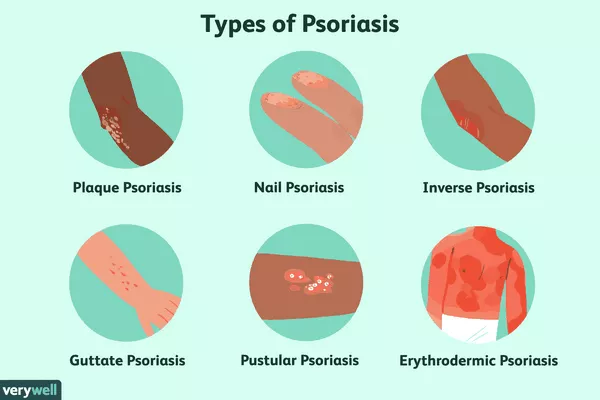Psoriasis, a chronic autoimmune skin condition, affects millions of individuals worldwide, causing discomfort, embarrassment, and reduced quality of life. While conventional medical treatments offer relief for many, the search for alternative therapies continues. Yoga, an ancient practice that combines physical postures, breathing exercises, and meditation, has gained attention for its potential benefits in managing various health conditions, including psoriasis. But can yoga truly offer a cure for psoriasis, or is it simply a complementary approach to conventional treatment? Let’s delve into the research and explore the possibilities.
Understanding Psoriasis: A Complex Skin Disorder
Before delving into the potential role of yoga in psoriasis management, it’s crucial to understand the nature of the condition itself. Psoriasis is characterized by the rapid proliferation of skin cells, leading to the development of thick, red, scaly patches on the skin’s surface. These patches can appear anywhere on the body, including the scalp, elbows, knees, and lower back. The exact cause of psoriasis remains unknown, but it is believed to involve a combination of genetic predisposition, immune system dysfunction, and environmental factors.
Psoriasis is not merely a cosmetic issue; it can significantly impact an individual’s physical and emotional well-being. Symptoms such as itching, pain, and inflammation can be physically uncomfortable, while the visible nature of the condition can lead to self-consciousness, social stigma, and psychological distress. Managing psoriasis effectively requires a holistic approach that addresses both the physical symptoms and the emotional impact of the disease.
The Role of Yoga in Psoriasis Management
Yoga, originating in ancient India, is a comprehensive system that encompasses physical postures (asanas), breathing techniques (pranayama), meditation (dhyana), and ethical principles. It is renowned for its ability to promote relaxation, reduce stress, and enhance overall well-being. Given the strong connection between stress and psoriasis flare-ups, yoga has emerged as a potential adjunct therapy for managing the condition.
Stress Reduction and Mind-Body Connection
One of the key benefits of yoga in psoriasis management lies in its ability to reduce stress levels. Research has shown that stress can exacerbate psoriasis symptoms by triggering inflammatory responses in the body and disrupting the skin’s barrier function. By practicing yoga regularly, individuals can learn to manage their stress more effectively, thereby potentially reducing the frequency and severity of psoriasis flare-ups.
Moreover, yoga encourages a deeper connection between the mind and body, fostering greater awareness of physical sensations and emotional states. This mind-body connection is particularly relevant in psoriasis, where psychological factors such as anxiety, depression, and low self-esteem often coexist with the physical symptoms. By cultivating mindfulness and self-compassion through yoga practice, individuals with psoriasis may experience improved psychological well-being and a greater sense of acceptance of their condition.
Physical Benefits of Yoga for Psoriasis
In addition to its stress-reducing effects, yoga offers various physical benefits that may be advantageous for individuals with psoriasis. Certain yoga postures focus on stretching, strengthening, and improving circulation, which can have positive effects on skin health and overall immunity. By enhancing blood flow to the skin and promoting detoxification through sweat, yoga may help alleviate some of the symptoms associated with psoriasis, such as itching and inflammation.
Furthermore, yoga promotes flexibility and joint mobility, which can be particularly beneficial for individuals with psoriatic arthritis, a common comorbidity of psoriasis. By gently mobilizing the joints and improving range of motion, yoga may help reduce pain and stiffness, thereby enhancing overall mobility and function.
Research Evidence and Clinical Studies
While the anecdotal evidence supporting the use of yoga for psoriasis is compelling, what does the scientific research say? Several studies have investigated the potential benefits of yoga in psoriasis management, although the evidence is still limited and additional research is warranted.
A systematic review published in the Journal of Clinical Rheumatology examined the efficacy of yoga as an adjunct therapy for various rheumatic diseases, including psoriatic arthritis. The review found that yoga interventions led to improvements in pain, physical function, and psychological well-being in patients with rheumatic diseases, suggesting that yoga may have potential benefits for individuals with psoriasis and related conditions.
Another study published in the Journal of Alternative and Complementary Medicine evaluated the effects of yoga and meditation on inflammatory markers and psychological distress in patients with psoriasis. The findings indicated that participation in a yoga and meditation program led to reductions in markers of inflammation and improvements in psychological symptoms, supporting the use of mind-body interventions in psoriasis management.
Integrating Yoga into Psoriasis Treatment Plans
While yoga shows promise as a complementary therapy for psoriasis, it is essential to approach its integration into treatment plans thoughtfully and cautiously. Yoga should not be viewed as a standalone cure for psoriasis but rather as a valuable adjunct therapy that can complement conventional medical treatments.
Individuals with psoriasis should consult with their healthcare providers before starting a yoga practice, especially if they have any underlying health conditions or physical limitations. A qualified yoga instructor can help tailor a practice to suit the individual’s needs and abilities, ensuring safety and effectiveness.
Incorporating yoga into daily life requires commitment and consistency. Even a short daily practice can yield significant benefits over time, helping individuals manage stress, improve flexibility, and cultivate a greater sense of well-being. Combined with other healthy lifestyle habits such as proper nutrition, adequate sleep, and regular skincare, yoga can play a valuable role in the comprehensive management of psoriasis.
Conclusion
While psoriasis remains a chronic and challenging condition to treat, the integration of complementary therapies such as yoga offers new hope for individuals seeking relief. By harnessing the mind-body connection and promoting holistic well-being, yoga has the potential to complement conventional medical treatments and improve the overall quality of life for individuals with psoriasis.
As research in this field continues to evolve, it is essential to remain open-minded and explore diverse approaches to psoriasis management. Yoga, with its ancient wisdom and modern relevance, may hold valuable insights into the holistic nature of health and healing. While it may not offer a cure for psoriasis, yoga can empower individuals to navigate their journey with greater resilience, acceptance, and vitality.
























